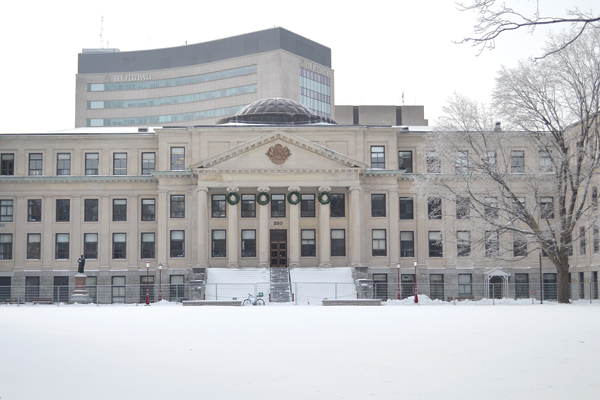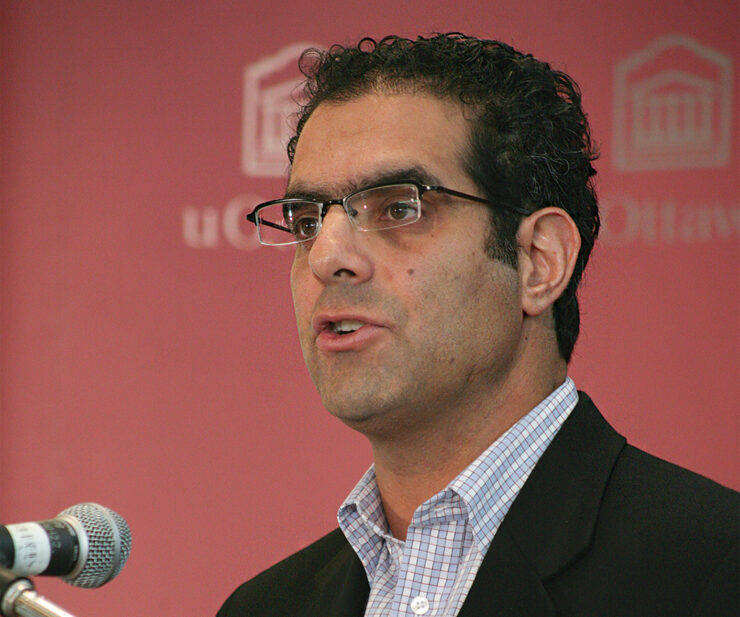Reforms to justice system and marijuana legalization part of Sept. 30 address
On Sept. 30, Ontario’s Attorney General and University of Ottawa alumnus Yasir Naqvi gave a lecture at Fauteux Hall as part of a homecoming series, where he discussed his time at the U of O and how it shaped his career.
“My best three years of my academic life—and I have four degrees under my belt—were spent in this building,” Naqvi said.
Naqvi began the lecture by sharing his experiences as a U of O law student in 1996, and how his professors influenced him to pursue a legal career.
And while much of the lecture did focus on Naqvi’s own career, he also shared several tips with the incoming class of U of O law students.
“To all of you who are starting your journey in law … take advantage of what Fauteux Hall really means and what law school really means because this is an amazing beginning of your life.”
From there, Naqvi discussed his role as Attorney General of Ontario, and how his passion for law developed at an early age while he still lived in Pakistan. Before coming to Canada in 1988, he watched his father get arrested and later detained for nine months after leading a pro-democracy march.
“Experiences that I had in my childhood shaped me and my belief system. It is the reason why I believe in the supremacy of the rule of law, the guarantee of individual rights, and that a justice system should treat everyone equally,” Naqvi said.
Naqvi shared that in his position he feels the need to ensure that Canada’s laws are just and that they should be updated in tandem with a changing society.
Naqvi then discussed legalization of marijuana for recreational use in Ontario. He said that it will take no less than two years to work through the law, as the province can do little until the federal government takes an official stance on the subject.
Naqvi said citizens should be mindful of the effects of recreational marijuana use, and that his mandate will focus on safeguarding the product, enforcing age restrictions, and ensuring road safety.
As part of the lecture, Naqvi also highlighted other areas in his mandate, such as reforming the provincial bail and remand system, creating a more transparent and accountable police oversight mechanism, enforcing legislation around equality for all parents and children, and modernizing the justice system.
“I believe that we really have an opportunity to use technology to make the justice process and the law accessible and available to everyone.”
While his work on the justice system has only just begun, Naqvi is confident that it will move in a more technologically advanced direction.
To close off the lecture, Naqvi told the new generation of U of O students that their journey into the world of law and politics is similarly just beginning.
“You will be empowered to change the lives of others in any which way you choose, whether to practice law or public service, or public policy or politics, like I did.”





